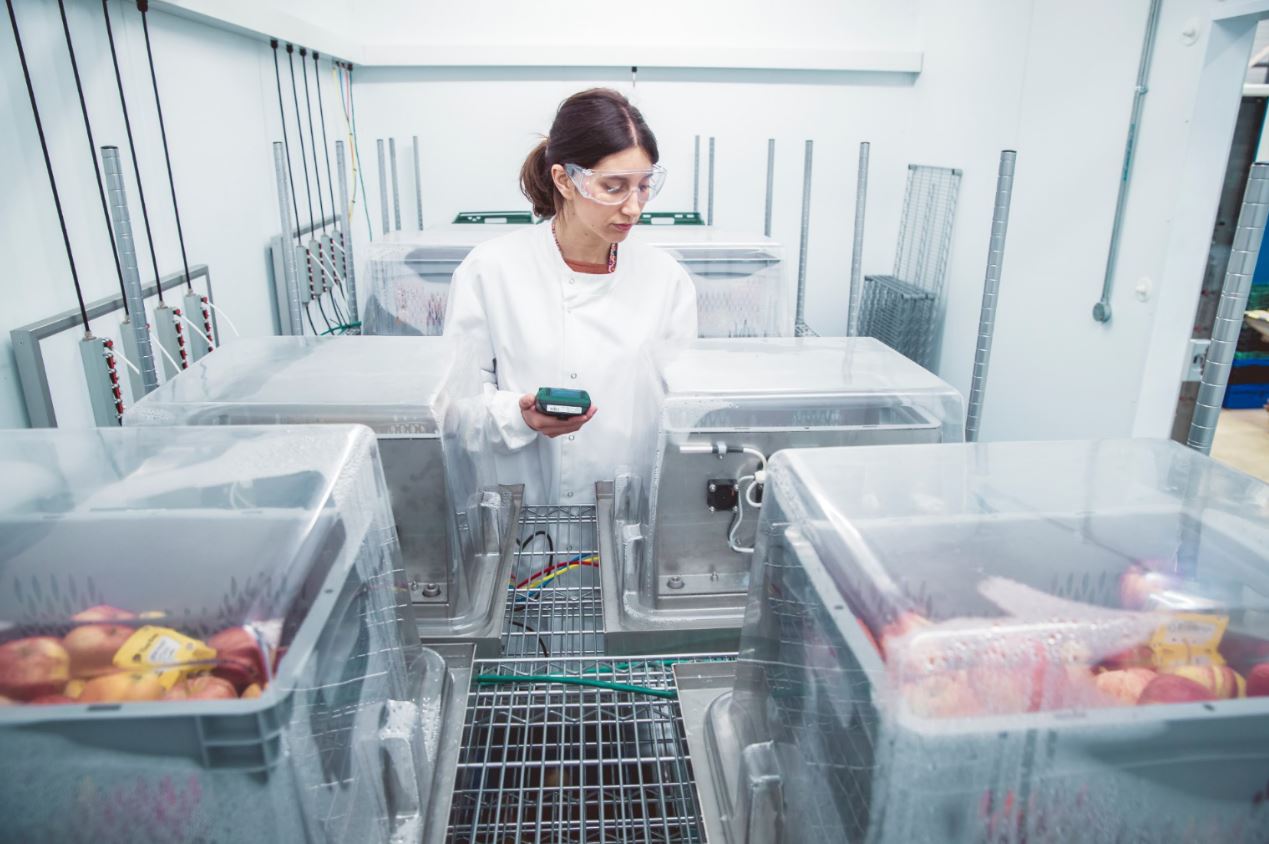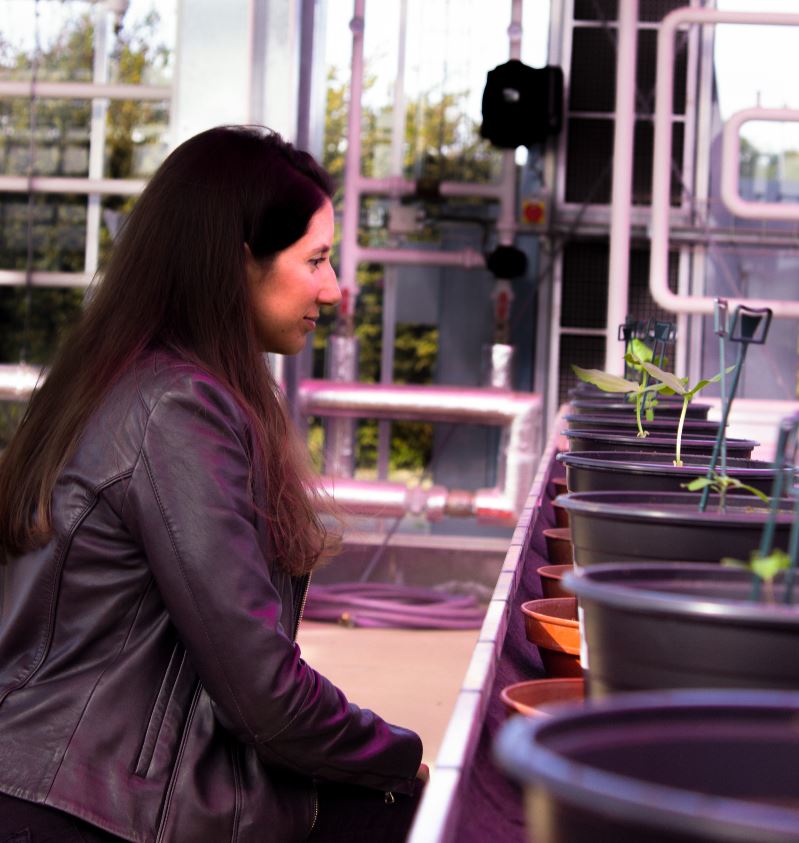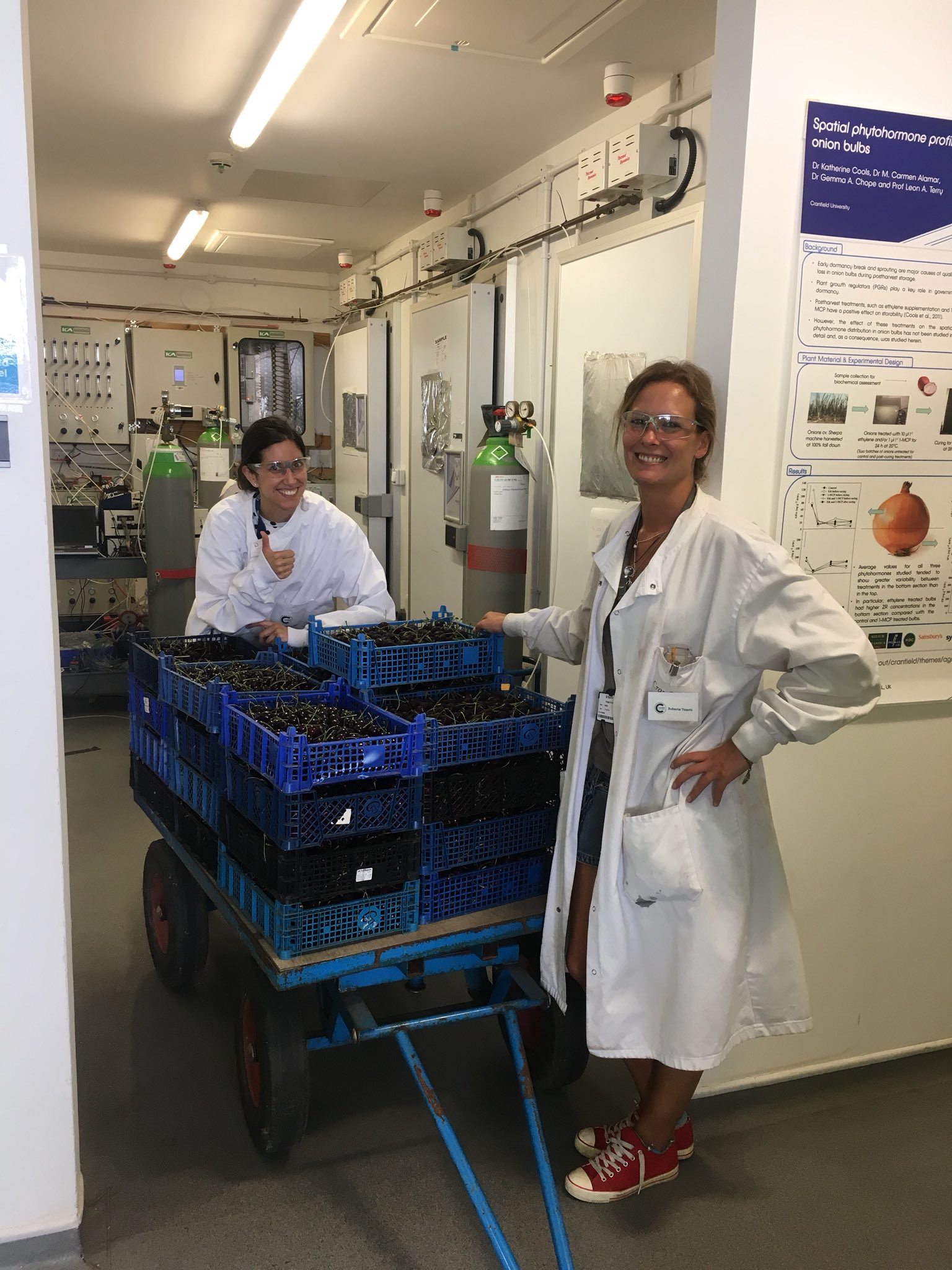A sit down with Dr Natalia Falagán Sama
14/04/2021

Can you tell us a bit about your background?
I studied Agricultural Engineering at Universidad Politécnica of Valencia (Spain) followed by an MSc and PhD in Food Engineering in Universidad Politécnica de Cartagena (Spain). Here I specialised in postharvest biology and technology of fresh produce. In 2016 I joined the Plant Science Laboratory at Cranfield University and I am now a Lecturer in Food Science and Technology in the School of Water, Energy and Environment.
Can you tell us more about your area of research?
My research focuses on reducing food loss and improving food security. This is a global challenge that involves industry, governments and society, for this reason I think it is important to have a multidisciplinary approach.
My work is based on two pillars. The first pillar is the fundamental science behind these food losses. I study the biological mechanisms behind ripening and senescence of fruit and vegetables. Fresh produce suffers multiple changes in environment from farm to fork and understanding the reasons why they respond as they do is key to developing strategies to maintain their nutritional quality and safety.
The second pillar is working towards a more sustainable and resilient supply chain, which requires a global perspective. For example, I am part of the Rurban Revolution team. Urban food production has been providing us with fresh produce and protecting green spaces in our cities for centuries. However, consumers are disconnected from their food supply, sometimes not knowing where fresh produce comes from and the amount of effort and resources involved in its production. Rurbanisation is bringing the rural environment to cities to expose consumers to green areas, involve the consumer in food production, reduce the carbon footprint of food transportation from conventional farming and reduce the burden of intensive systems on our rural soils.

Why did you choose to Cranfield?
I chose Cranfield because it has a balance between fundamental and applied research and strong links with industry. This is very interesting to me because we contribute to scientific knowledge and also develop applications that people can benefit from. This has a direct impact on society, improving food quality and accessibility.
What’s a typical day at Cranfield?
To be honest, no two days are the same! My job involves research, teaching, supervision, industry engagement, etc. So one day I can be in the laboratory analysing some bioactive compounds and the next I can be teaching on our MSc courses (Food Systems and Management and Future Food Sustainability) or meeting with industrial partners that are having issues with the quality of their fresh produce.

Can you highlight a unique experience at Cranfield?
I have been working with Defra, UNEP U4E and a consortium of UK universities (University of Birmingham, London South Bank University and Heriot-Watt University) to build the new Africa Centre of Excellence for Sustainable Cooling and Cold Chain. This centre will improve the cool and cold supply chain in Africa and boost environment and the economy through reduced food loss and waste. I think this project will have a real impact in livelihoods and global food systems and I am very excited to be part of it.
Categories & Tags:
Leave a comment on this post:
You might also like…
Company codes – CUSIP, SEDOL, ISIN…. What do they mean and how can you use them in our Library resources?
As you use our many finance resources, you will probably notice unique company identifiers which may be codes or symbols. It is worth spending some time getting to know what these are and which resources ...
Supporting careers in defence through specialist education
As a materials engineer by background, I have always been drawn to fields where technical expertise directly shapes real‑world outcomes. Few sectors exemplify this better than defence. Engineering careers in defence sit at the ...
What being a woman in STEM means to me
STEM is both a way of thinking and a practical toolkit. It sharpens reasoning and equips us to turn ideas into solutions with measurable impact. For me, STEM has never been only about acquiring ...
A woman’s experience in environmental science within defence
When I stepped into the gates of the Defence Academy it was the 30th September 2019. I did not know at the time that this would be the beginning of a long journey as ...
Working on your group project? We can help!
When undertaking a group project, typically you'll need to investigate a topic, decide on a methodology for your investigation, gather and collate information and data, share your findings with each other, and then formally report ...
From passion to purpose: My journey at the Pinnacle of Aviation
By: Sultana Yassin Abdi MSc Air Transport Management, Current Student Born and raised in the vibrant landscape of the UAE, with roots stretching back to Somalia, my life has always been ...






